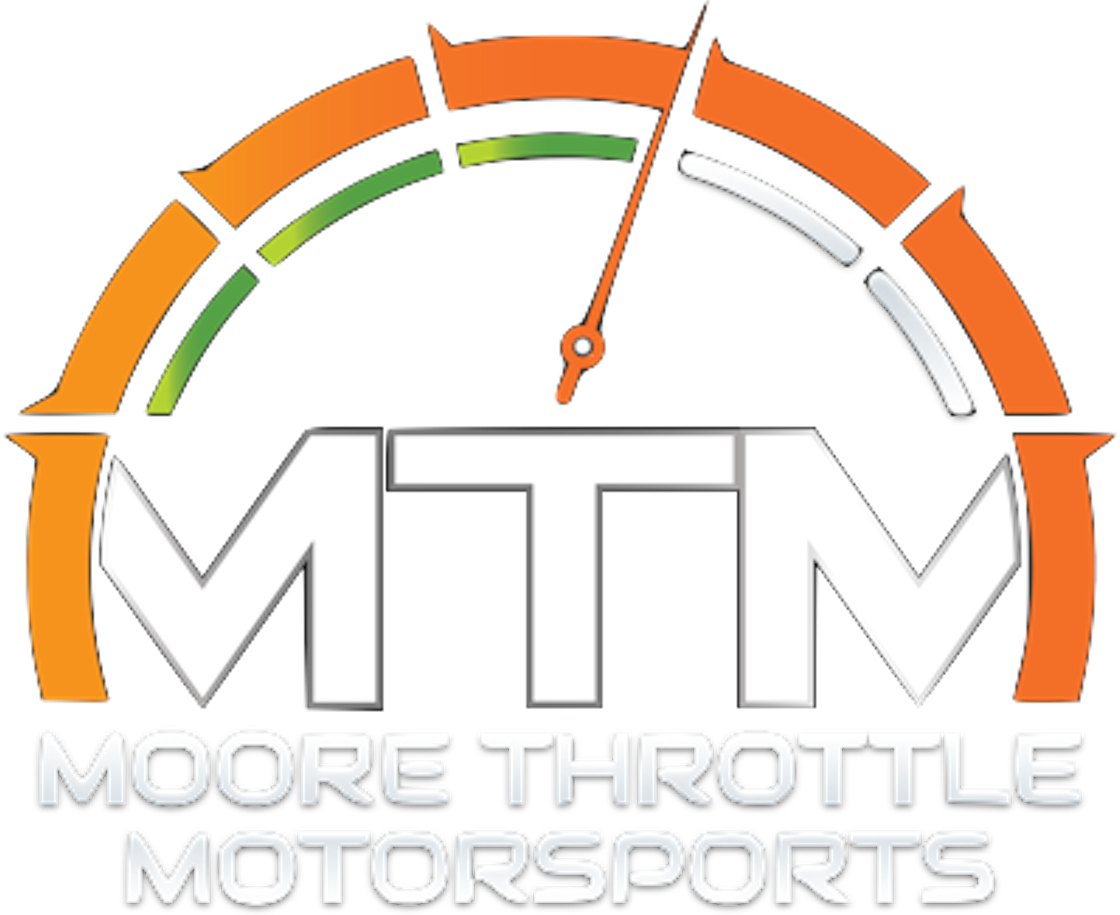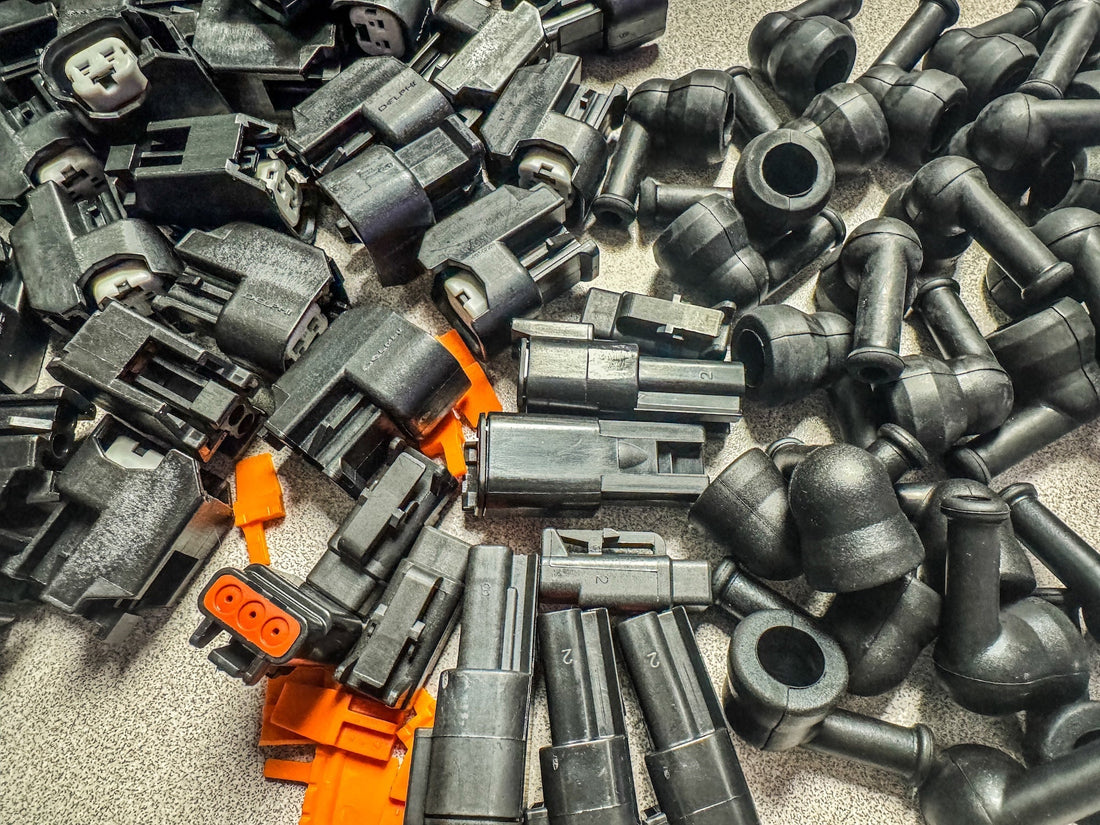By Moore Throttle Motorsports
When most people think about wiring a race car, they picture the harness layout, the heat-shrink labels, or the braided sleeving. But the true backbone of any reliable wiring system lies in a component that often gets overlooked: the connector.
At Moore Throttle Motorsports, we specialize in designing and building high-quality, mil-spec harnesses that can withstand heat, vibration, and abuse from both the street and the track. And the difference between a good harness and a great one usually comes down to connector selection and termination.
Why Connectors Matter
Every circuit in your vehicle depends on a clean, consistent electrical path. The connector is where that path is most likely to fail — especially in performance environments exposed to oil, moisture, heat, and movement. A cheap or poorly sealed connector can introduce voltage drop, intermittent signals, or total failure.
That’s why we focus on motorsport-grade and mil-spec connectors — the same technology used in aerospace and defense applications — to ensure that every signal and sensor reading is reliable at 200 mph or 200°F.
Connector Types We Use
We commonly integrate a range of connector styles depending on the system’s needs:
-
Deutsch DT, DTM, and DTP Series: Industry-standard for automotive and motorsport applications. These connectors balance compact size, current capacity, and weather resistance.
-
Autosport Connectors (Souriau, TE, etc.): Used in professional race cars and high-vibration environments. They feature secure bayonet locking, gold-plated pins, and 360° shielding options for EMI protection.
-
Molex, Sumitomo, and OEM-specific connectors: When a project requires compatibility with factory ECUs or sensors, we maintain proper pin-to-pin OEM mapping with OE-style housings and terminals.
We stock, source, and even custom-build connector assemblies depending on the demands of each harness design.
Sealing, Strain Relief, and Serviceability
Connectors aren’t just about pin counts — they’re about long-term durability.
Every Moore Throttle harness incorporates:
-
Proper wire crimping using calibrated tooling for consistent resistance.
-
Optional Booted strain relief (Raychem heat-shrink boots) to prevent conductor fatigue at the shell.
-
Environmental sealing using heat-shrink and epoxy potting where necessary.
-
Labeling and orientation indexing for serviceability during engine swaps, teardown, or tuning.
That means if you ever need to replace a sensor or re-pin for a new ECU, your harness remains modular and service-friendly — no cutting or guessing required.
Choosing the Right Connector for Your Application
When building or upgrading a harness, always consider:
-
Current load and wire gauge compatibility
-
Temperature range and environmental exposure
-
Vibration level and mechanical strain
-
Connector engagement style (push-lock, bayonet, or threaded)
-
Ease of maintenance (especially for track-side repairs)
Our shop uses these criteria every day to determine whether your build needs a weather-sealed DTM or a high-density Autosport solution.
Conclusion
Connector technology is more than just plugs and pins — it’s the foundation of electrical reliability. Whether you’re wiring a Coyote swap, a boosted street car, or a full race platform, choosing the right connector can make the difference between finishing a pass or chasing gremlins all weekend.
At Moore Throttle Motorsports, we don’t just build harnesses — we engineer them. Every connector, seal, and pin is chosen with purpose, tested for function, and installed to aerospace-level standards.
→ Ready to upgrade your wiring?
Browse our Connector Shop or contact us to design your next custom mil-spec harness.

